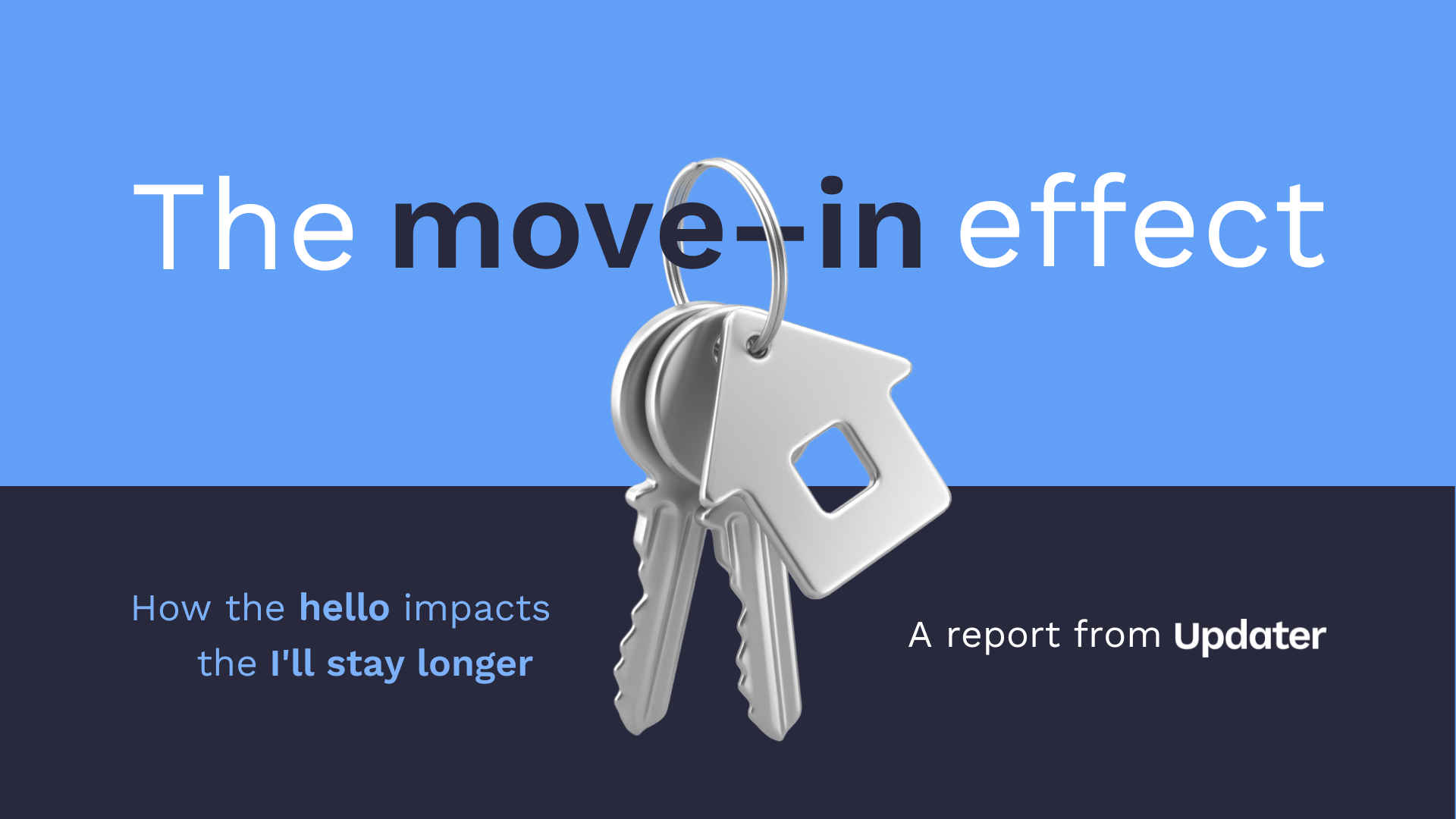7 Ways to Prevent Home Buyer’s Remorse with Millennials

A recent survey conducted by Bankrate revealed that almost half (44%) of all homeowners show regrets after a home purchase. For millennials, the number is even higher. A whopping 63% of homebuyers between the ages of 23 and 38 have regrets about purchasing their current home. As a real estate agent, there is plenty of room here for you to step in and prevent buyer’s remorse.
By taking a few extra steps and getting to know your clients, you can ensure that they will be happy with their home purchase for many years ahead. First-time home buyers may not be 100% sure of their options, or even their priorities, so listening to their needs is crucial to finding them a home they’ll be happy in — today, next week, and next year.
The advantages of ensuring clients feel confident in their purchases are twofold: first, you gain a competitive edge over other brokerages and online platforms by leveraging the power of empathetic customer service. Second, you add value to each interaction by going the extra mile to find the right home for your clients. This value will continue to prove itself over time through referrals and positive reviews.
By understanding the most common regrets home buyers experience, you’ll be one step closer to keeping clients out of the red and kicking remorse to the curb. Let’s get started!
1. Regret: Expensive Maintenance and Hidden Costs
Prevention/solution: Keep them informed and under budget
Percentage of homeowners who regret buying a home due to maintenance and hidden costs: 18%
It’s not surprising that this is the largest area of remorse for home buyers. Between surprise repairs and routine maintenance, the costs of keeping up a home can mount quickly. The average homeowner spends $2,000 a year on maintenance costs alone. For 18% of millennial homebuyers, these costs add up rapidly and are often unexpected. To prepare, homeowners should put away 1-3% of their home’s purchase price per year in a savings fund specifically created for home repairs.
As their agent, you can protect your clients from overspending on a home by keeping them informed. Make sure they are aware of how much it costs to maintain a home, be it via regular charges such as HOA fees or sporadic more costly expenses such as roof repairs or replacement. Insist that they get a home inspection and purchase a home warranty. Combined, these are two ways buyers can avoid costly surprises.
Additionally, ask clients to take a close look at their budget. Does it change once they factor in the extra 1-3% in maintenance costs? If so, it could be worth adjusting their search for a home within a tighter budget. That way, they’ll have some room to save for unexpected costs.
2. Regret: House is too Small
Prevention/solution: Understand their current and future needs
Percentage of homeowners who regret buying too small a home: 12%
Millennials do most of their research online before stepping foot into a home. This means that they might know the neighborhood, school district, and employment statistics, but they may not know how much space they really need to feel comfortable. Fast forward five years down the line and their need for space might be very different. It’s a good idea to remind clients this is a long-term investment and encourage them to imagine themselves in their new home years into the future.
Before you show millennials their first home, make sure you understand their long-term needs. Do they plan to expand their family or bring pets into the picture? Whether it’s band practice in the garage or fitness sessions on the elliptical, do they have any hobbies that require additional space? Getting familiar with what your clients need both now and in the future will pay off down the line.
Once you know what they’re likely to need out of a home, you can further prevent home buyer’s remorse by considering the layouts of potential homes. The functionality of a home isn’t just determined by its square footage, it must also be well laid out. A floor plan that allows clients to add extensions or build out the basement and attic gives them options for the future. This additional storage space is crucial for home buyers. If they’re working with a limited budget and can’t afford the extra square feet of living space, ensuring they have adequate storage space will make a huge difference.
3. Regret: Home is in a Bad Location
Prevention/solution: Encourage them to get to know the neighborhood
Percentage of homeowners who regret buying a home due to its location: 8%
Almost 10% of homeowners regret buying their home due to location. The neighborhood, or even street, where their home is located can affect not only the aesthetics of a home but also the crime rate, exposure to natural disasters, and school districts. For all of these reasons, ensuring a home is in the most ideal location possible is key to preventing buyer’s remorse.
Neighborhoods can look completely different at night. To ensure clients know what they’re getting, encourage them to visit the area both in the daylight and the evening to get a feel for it at all times of the day. Having crime and school statistics on hand is also helpful for clients to get a full view of their potential neighborhood. Even directing them to websites where they can access the information themselves is better than ignoring it entirely. But if you want to make the most impact, a brief run-down is the way to go.
4. Regret: Poor Investment
Prevention/solution: Share the area’s resale value statistics with clients
Percentage of homeowners who consider buying their home a bad investment: 7%
Many people buy a home assuming they’ll make a profit when they sell. Unfortunately, depending on the location and when you purchase, this isn’t always the case. Markets change and the unexpected happens.
That said, as an agent, you have insight and expertise that’s extremely valuable to your clients. Make sure you share your knowledge of different areas and the resale value of similar homes.
It’s also important to ask if your clients even know the resale requirements to begin with. Make sure your clients are familiar with them before finalizing the sale. It might not always be the first question you ask, but millennials are inherently entrepreneurial and they might have a number of reasons for wanting to purchase a home. To make sure they get the most out of their investment, check in with them to confirm that you fully understand their real estate investment goals. For clients who are on a tight budget, but also want to see a significant return on their investment, this might mean buying in an up-and-coming area or purchasing a home that needs more than minor repairs.
What if your client wants to flip a home? Unless your client’s budget is much larger than the purchase price of the property, or they are familiar with home flipping, try to steer them clear of a fixer-upper. Fixer-uppers often cost far more to repair than homeowners are willing or able to spend.
5. Regret: Mortgage Payment is too High
Prevention/solution: Keep clients within budget
Percentage of homeowners who regret buying a home due to high mortgage payments: 7%
Housing prices are on the rise and 7% of homeowners regret buying a home with too high of a mortgage payment. To protect your client from buyer’s remorse, make sure that they understand what the total of all their monthly payments will look like. This includes the principal, interest, taxes, insurance, and any HOA fees.
It’s advisable that homeowners keep monthly mortgage payments to a maximum of 28% of their monthly income. If they start tweaking and expanding their budget for more space or a game room, try to reel your clients in and keep them on track. They’ll thank you later.
It goes without saying that it’s best to show clients homes that are within their budget. Help them out further by advising clients to keep putting money away as you search for a home. That way they can offer the strongest downpayment possible. This could lower their monthly payments by hundreds of dollars every month, saving them more money in the long run.
6. Regret: Didn’t Get the Best Mortgage Rate
Prevention/solution: Recommend the right lenders
Percentage of homeowners who regret buying a home because of their mortgage rate: 6%
The road to an ideal mortgage rate can feel like an obstacle course. In fact, nearly one-third of home buyers don’t even know what their mortgage rate is. Since starting the home-buying process on the right foot is nearly impossible without a firm grasp of the basics, it’s crucial to set your clients up for success from day one.
By simply recommending trusted mortgage lenders to buyers, you can make a huge difference in their search. They’ll remember how helpful you were and that you cared enough to keep their financial stability in mind throughout the home-buying process.
7. Regret: House is too Big
Prevention/solution: Ask about your client’s lifestyle
Percentage of homeowners who regret buying a home that is too big: 5%
Buyer’s remorse is also an issue when homeowners purchase too large of a home. Whether it’s the utility bills or the cavernous feeling, 5% of home buyers regret buying too big of a home.
But just how do you know what the right sized home is? Start by getting to know your clients. Find out where their priorities lie. Know if they tend to travel more often or host dinner parties on the weekends, for example. Go over the average utility costs for homes and property taxes in their desired areas.
If you get them thinking about their lifestyle and financial situation early on, they should know which size of a home is best for their circumstances.
To prevent buyer’s remorse, it’s important to keep in mind that buying a home is no small feat. This may be another day on the job for you, but this is a huge moment for your clients. Luckily, you can protect your clients from regret with a little extra effort. These small preventative steps are easy to use and are well worth it to protect your clients from buyer’s remorse.














